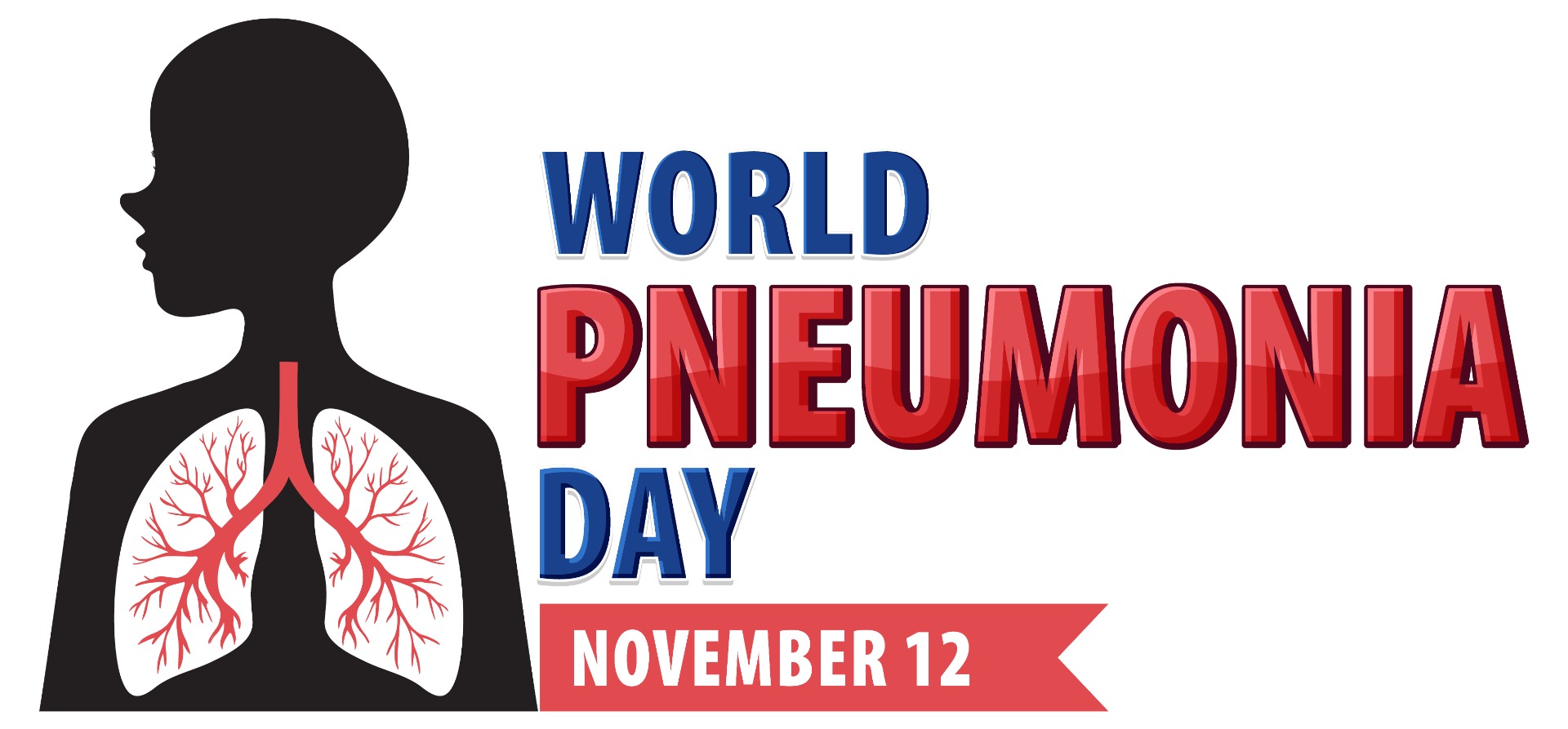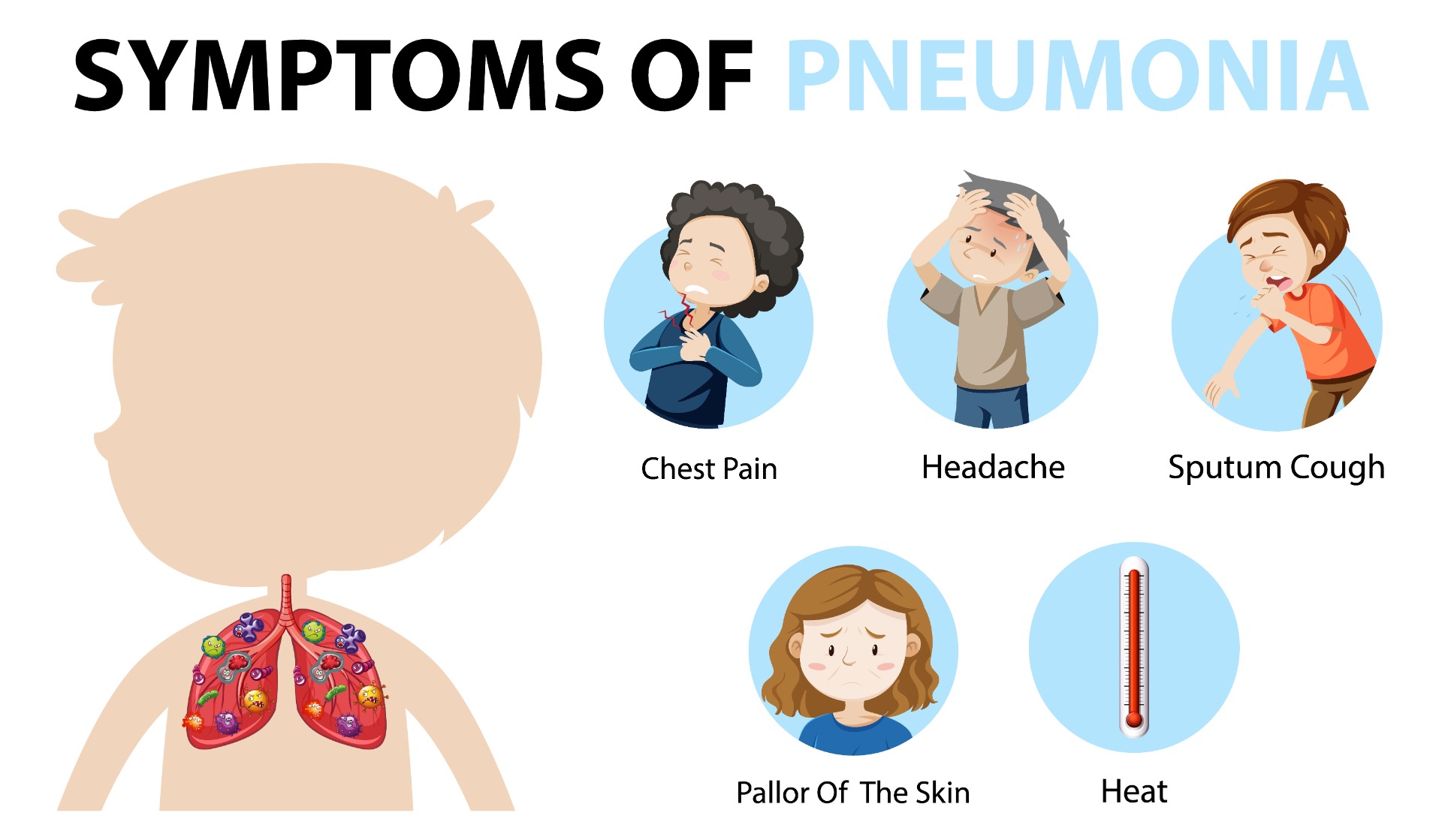Sometimes It's Okay If The Only Thing You Did Today Was Breathe
Nov 12, 2022
1367 Views
In 2009, Stop Pneumonia Initiative decided to observe November 12 as World Pneumonia Day. The main aim was to raise awareness about the toll of the pneumonia-a leading killer of children -and to advocate for global action to protect, prevent and effectively treat this deadly illness.
 Pneumonia is an acute respiratory infection that affects either one or both lungs. It causes the air sacs, or alveoli, of the lungs to fill up with fluid or pus causing cough with phlegm or pus, fever, chills, and difficulty breathing.
Pneumonia is an acute respiratory infection that affects either one or both lungs. It causes the air sacs, or alveoli, of the lungs to fill up with fluid or pus causing cough with phlegm or pus, fever, chills, and difficulty breathing.
Pneumonia killed 7,40,180 children under the age of 5 in 2019, accounting for 14% of all deaths of children under five years old but 22% of all deaths in children aged 1 to 5. This is greater than the number of deaths from any infectious disease, such as HIV infection, malaria, or tuberculosis.
Pneumonia affects children and families everywhere, but deaths are highest in South Asia and sub-Saharan Africa. Children can be protected from pneumonia, with simple interventions, and treated with low-cost, low-tech medication and care.
Causes of Pneumonia
Viruses, bacteria, and fungi can all cause pneumonia. The common causes of viral pneumonia are
- Influenza viruses
- Respiratory syncytial virus (RSV)
- SARS-CoV-2 (the virus that causes COVID-19)
Common causes of bacterial pneumonia are Streptococcus pneumoniae (pneumococcus) and, especially in kids, Mycoplasma pneumonia.
Other causes of pneumonia include being hospitalized, chronic disease, smoking, and suppressed immunity.
Symptoms
- Chest pain when you breathe or cough
- Confusion or changes in mental awareness (in adults age 65 and older)
- Cough, which may produce phlegm
- Fatigue
- Fever, sweating, and shaking chills
- Lower body temperature (in adults older than age 65 and people with weak immune systems)
- Nausea, vomiting, or diarrhea
- Shortness of breath

How is pneumonia diagnosed?
Diagnosis is usually based on recent health history (such as surgery, a cold, or travel exposures) and the extent of the illness. The following tests may be used to confirm the diagnosis:
- Chest X-ray: to visualize the internal tissues, bones, and organs, including the lungs.
- Blood tests: to check for any infections and arterial blood gas testing checks the amount of oxygen in your bloodstream.
- Sputum culture: to check for an infection in the lungs.
- Pulse oximetry: to measure the amount of oxygen in the blood
- Chest CT scan: This imaging procedure uses a combination of X-rays and computer technology to produce sharp, detailed horizontal, or axial, images (often called slices) of the body.
- Bronchoscopy: to evaluate lung problems, assess blockages, and take out samples of tissue and/or fluid for testing.
- Pleural fluid culture: to find out which bacteria is causing pneumonia.
Treatment
It depends on the type of pneumonia, age, and other underlying health conditions. The main goal of the treatment is to cure the infection and prevent complications.
If pneumonia is mild, as prescribed by the physician, you can use anti-bacterial, antiviral, anti-fungal, and over-the-counter medicines to treat it at home.
If pneumonia is serious, it has to be treated in a hospital with antibiotics and fluids through an intravenous (IV) line. Oxygen therapy increases the amount of oxygen in the blood. If the person is in a critical condition, one must be put on a ventilator. Surgery can be performed to remove seriously infected or damaged parts of your lung to prevent pneumonia from reoccurring.
Prevention
Pneumonia can be serious and life-threatening. The World Health Organization says that preventing pneumonia in children is essential to reduce child mortality.
One can also help prevent respiratory infections by:
- Washing your hands regularly
- Cleaning and disinfecting surfaces that are touched a lot
- Coughing or sneezing into a tissue or your elbow or sleeve
- Limiting contact with cigarette smoke or quitting smoking
- Taking good care of medical conditions (like asthma, diabetes, or heart disease)

